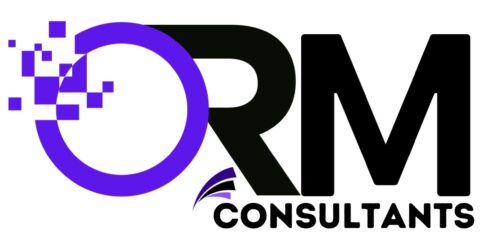Introduction: When Google Finishes Your Sentence—And Destroys Your Reputation
You’re typing your name or business into Google, and before you even hit “search,” a list of suggestions appears. One of them includes words like “scam,” “arrest,” “lawsuit,” or “divorce.” You never committed fraud, and there’s no court case. But now, those words live beside your name in Google’s Autocomplete. To the average person, that single suggestion is enough to trigger doubt, suspicion, or even rejection.
This is the power—and danger—of Google Autocomplete.
And this is exactly why individuals, professionals, and businesses are increasingly paying to monitor, manage, and even remove certain Google Autocomplete suggestions that threaten their online image. In this blog, we’ll break down why Google Autocomplete matters, how it works, and how people are fighting back to reclaim their digital reputation.
What Is Google Autocomplete, Really?
Google Autocomplete is a predictive feature designed to speed up your search. As you begin typing a query, Google automatically fills in the rest based on popular or trending searches. While this sounds helpful on the surface, it becomes problematic when negative, outdated, or false suggestions appear alongside someone’s name or business.
For example, if you type “John Smith,” you might see suggestions like:
- John Smith lawsuit
- John Smith scam
- John Smith complaints
Even if these terms are inaccurate, they reflect what other people are searching—causing potential employers, clients, or partners to assume guilt by association. It’s no surprise that reputation-conscious individuals are now turning to Google Autocomplete management services.
Autocomplete Isn’t Just About What You Did—It’s About What Others Search
Google’s system doesn’t necessarily show what’s true. It shows what people are searching for.
Let’s say a rumor spreads about a public figure. Thousands of users begin typing that person’s name followed by “divorce,” “cheating,” or “fraud.” Google picks up on that surge in interest, assuming it’s a trend worth suggesting. Now, anyone who types the first few letters of their name is greeted by these damaging phrases.
This dynamic creates a dangerous feedback loop:
- A rumor starts or an article is published.
- People search for it, causing volume to spike.
- Google displays the negative phrase as an Autocomplete suggestion.
- More people see it and click, reinforcing the trend.
- The suggestion becomes permanent—even if it’s false.
This is how Google Autocomplete can create a digital scar that’s almost impossible to erase without intervention.
Why Google Autocomplete Suggestions Are So Powerful
Search suggestions act like social proof. If Google says people are searching it, it must be true—or at least worth investigating. And in our fast-paced digital world, few people stop to question a suggestion before making assumptions.
Research shows that Autocomplete can influence user behavior, public perception, and decision-making in significant ways:
- Employers may cancel interviews.
- Clients may pull contracts.
- Journalists may use suggestions to find stories.
- Friends and family may judge based on what they see.
For public figures, CEOs, doctors, lawyers, and influencers, this kind of reputational threat can cost millions in lost opportunities.
The New Industry: Google Autocomplete Management
Just like businesses once paid for SEO to appear in Google’s top search results, many are now paying for Autocomplete suppression or cleanup. This emerging reputation management service involves removing, replacing, or modifying negative suggestions through legal, technical, and strategic content practices.
These services are in high demand, especially among:
- Celebrities and influencers
- CEOs and entrepreneurs
- Medical professionals
- Politicians and public officials
- Students applying for top universities or internships
Many clients don’t have anything to hide—they’re simply trying to correct unfair or damaging assumptions caused by search behavior.
How Google Autocomplete Can Be Managed or Cleaned Up
While Google doesn’t offer a direct way to “edit” Autocomplete, reputation management professionals use multiple strategies to influence what appears:
1. Search Engine Manipulation
ORM experts guide search traffic toward positive, neutral, or brand-safe terms. When enough users begin searching and clicking these, Google starts replacing the old suggestions.
2. Content Creation and SEO
Publishing blogs, press releases, and articles with preferred search terms can help Google suggest new autocomplete entries. This is often combined with social media campaigns and keyword optimization.
3. De-indexing Harmful Content
If specific articles or pages are causing negative Autocomplete results, ORM firms may work to have them de-indexed from search engines through removal requests or legal notices.
4. Legal Notices and Defamation Claims
In cases of defamation, harassment, or privacy violations, lawyers can submit formal complaints to Google, especially in countries with strong digital rights protections.
5. Data Suppression
Even if a damaging term can’t be removed, ORM services may bury or suppress the results so they become less visible, reducing their influence over time.
Real-World Impact: Why People Are Paying
The motivation behind managing Google Autocomplete goes far beyond vanity. For many, it’s about survival.
- A real estate agent saw their sales drop by 40% after “scam” appeared next to their name.
- A startup founder lost two rounds of funding after “lawsuit” became a top suggestion, even though it was unrelated to them.
- A high school teacher struggled to find employment after “inappropriate conduct” showed up in suggestions based on a different individual with the same name.
In each of these cases, the affected individuals turned to professional Autocomplete suppression services to clear their name and rebuild trust.
Is Google Autocomplete a Violation of Privacy?
Some argue that Google is simply surfacing public interest, while others believe Autocomplete functions as a biased, damaging digital judgment. The reality is nuanced. Google maintains it doesn’t manually alter suggestions unless there’s a clear violation of their policies (like hate speech or illegal activity), but that doesn’t stop the damage caused by misleading or out-of-context terms.
Until laws evolve to handle this modern dilemma, many people are left with one option: take matters into their own hands.
How to Protect Yourself
Whether you’re a private citizen, business owner, or public personality, you can take proactive steps to safeguard your name from Autocomplete harm:
- Monitor Your Name Frequently: Type your name or brand in Google regularly.
- Set Up Google Alerts: Get notified when your name is mentioned online.
- Create Positive Digital Content: Publish blogs, guest posts, and social profiles.
- Work with Reputation Experts: Hire professionals to guide search behavior ethically.
- Avoid Controversy in Online Behavior: Your digital footprint directly influences Autocomplete.
Final Thoughts: Your Name Is Your Brand—Protect It
Google Autocomplete is no longer just a convenience tool—it’s a reputation mirror that reflects how the world sees you. A single damaging suggestion can alter life opportunities, business deals, or career paths. While you may not have full control over what people search, you do have the power to influence what shows up.
If you’ve seen something troubling appear next to your name or brand in search, you’re not alone—and you don’t have to accept it. Managing Google Autocomplete is not about hiding the truth. It’s about making sure your digital identity is fair, accurate, and professional.
Your future might start with a Google search. Make sure it starts the right way.




Leave A Comment